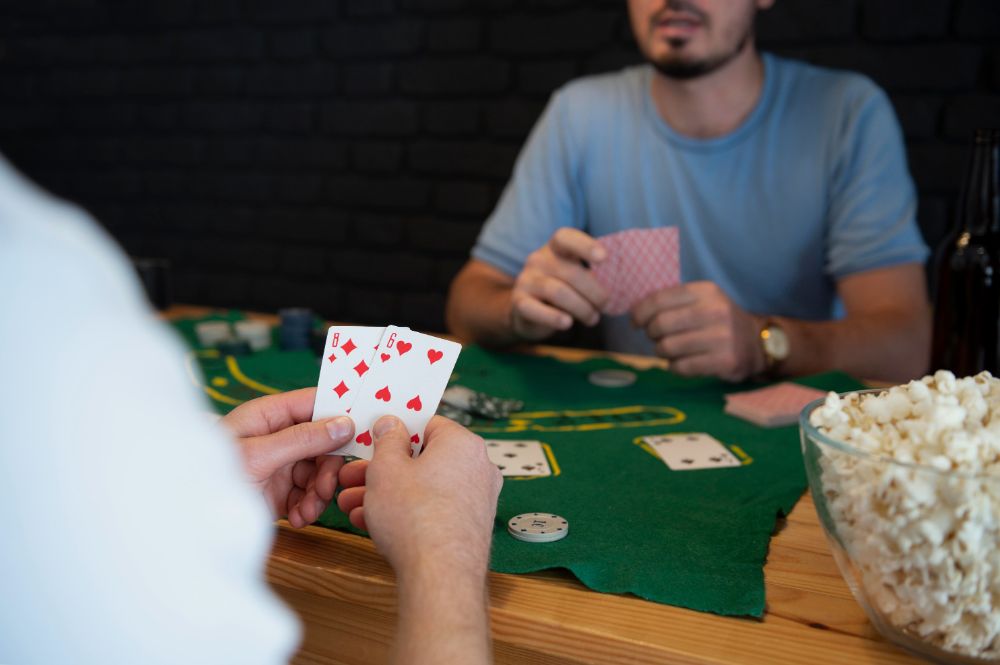When delving into the strategic aspects of poker, understanding the importance of constructing a solid range becomes paramount for success at the tables. Balancing your play involves not only the hands you hold but also the tactical choices you make to stay ahead of your opponents. By meticulously designing a range that keeps your rivals guessing, you can manipulate the dynamics of the game and outsmart even experienced players.
But how does one achieve this intricate balance? Let’s delve into the fundamental principles and strategies that can enhance your poker skills significantly.
Understanding Poker Ranges
Understanding poker ranges is fundamental for strategic play in the game. A poker range represents the spectrum of hands a player could have in a given situation, guiding decision-making processes. By analyzing opponents’ potential hand ranges, players can anticipate their moves and adjust their gameplay accordingly.
Factors like position, betting behavior, and opponent tendencies are crucial in defining these ranges accurately. A precise assessment of opponents’ ranges enhances decision-making by providing a basis in probability rather than guesswork.
Developing proficiency in ranging opponents is a valuable skill that can significantly improve one’s poker strategy. Dedicate time to studying and practicing poker range analysis to enhance your overall gameplay.
Importance of Balance in Poker
Establishing a strong poker range entails more than just understanding probabilities; it necessitates a careful consideration of balance in your gameplay. Balance plays a vital role in poker as it helps prevent opponents from easily exploiting your patterns.
By incorporating a mix of strong hands, bluffs, and semi-bluffs in a balanced manner, you create uncertainty for your opponents and make it challenging for them to predict your strategy. Maintaining equilibrium allows you to maximize value from your strong hands while safeguarding yourself from being taken advantage of when bluffing.
It’s important to note that balance doesn’t mean playing every hand identically but rather strategically varying your actions to keep opponents guessing and uncertain of your next move.
Implementing Range Advantage Strategies
Developing effective range advantage strategies in poker hinges on a solid grasp of positional play and hand selection to outmaneuver opponents. By tactically choosing hands to play based on table position and opponents’ tendencies, players can exploit situations where their range is stronger.
For instance, players in late position can widen their range to include speculative hands when opponents’ ranges are weaker, enabling them to apply pressure and win pots uncontested more often.
Moreover, adjusting bet sizing and frequencies in line with range advantage can boost profitability and overall success at the poker table.
By the way, take a look at our article https://cardcasinogame.com/2024/11/27/poker-bankroll-management-strategies-for-long-term-success/
Adjusting Your Range Based on Opponents
Adapting your range in poker based on your opponents is a strategic move that can help you maximize your winnings. When facing loose-aggressive players, consider tightening your range to avoid being bluffed or trapped, and wait for strong hands to counter their aggressive plays effectively.
Against tight opponents, expanding your range and using more aggressive tactics can pressure them into folding weaker hands, taking advantage of their cautious approach. Dealing with passive players may involve increasing your value bets with a wider range of hands to extract more chips from their tendency to call rather than raise.
Playing against unpredictable opponents requires a balanced range to prevent being exploited by their erratic decisions. By adjusting your range to match your opponents’ playing styles, you can enhance your chances of success and outperform them at the poker table.
Practice and Refine Your Range
Developing proficiency in poker requires dedicated attention to refining your range. Consistent practice and analysis of past hands are crucial for mastering your decision-making patterns. By identifying areas for improvement and adjusting your range based on data-driven insights, you can enhance your strategic approach.
Experimenting with different strategies in diverse game scenarios allows you to test the effectiveness of various ranges. Continuous refinement is essential to maintain unpredictability and prevent opponents from exploiting your gameplay. Seeking feedback from experienced players or coaches can provide valuable insights for further fine-tuning your range.
Curious Mastering Heads-Up Poker: Strategies for One-on-One Play? We’ve got an article for you – https://cardcasinogame.com/2024/12/05/mastering-heads-up-poker-strategies-for-one-on-one-play/
Conclusion
Now that you understand the concept of building a solid poker range through balance, it is essential to practice consistently and refine your skills. By incorporating a combination of strong hands, bluffs, and semi-bluffs into your range, you can maintain unpredictability and increase your profitability during gameplay. It is important to remain adaptable, carefully observe your opponents’ playing styles, and continuously improve your strategic approach to enhance your overall performance as a poker player. Keep up the disciplined effort in developing your range effectively.

